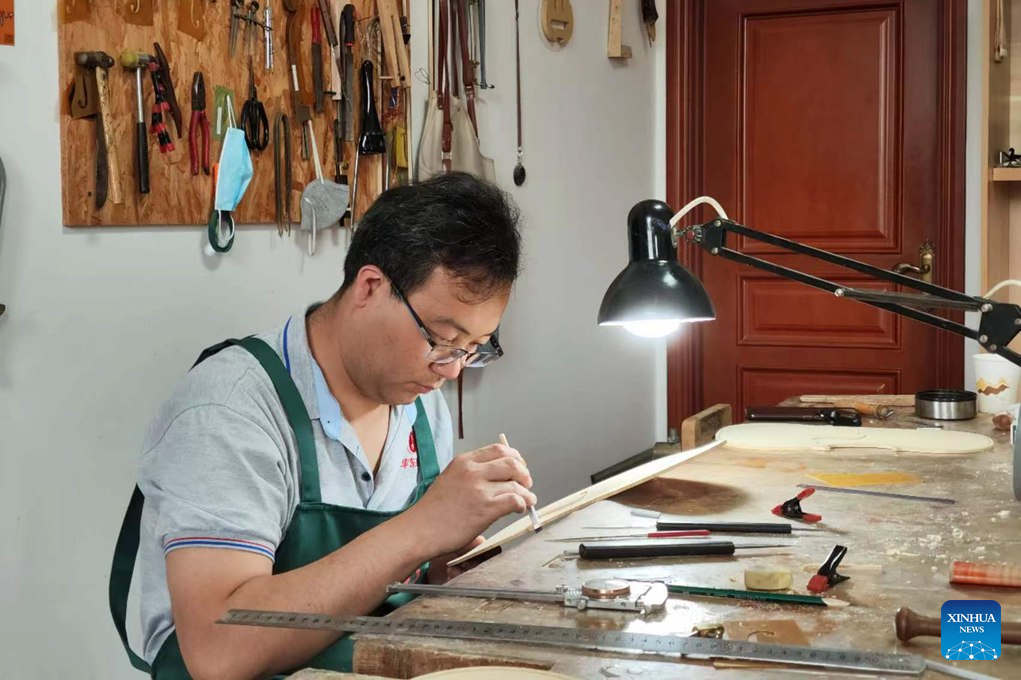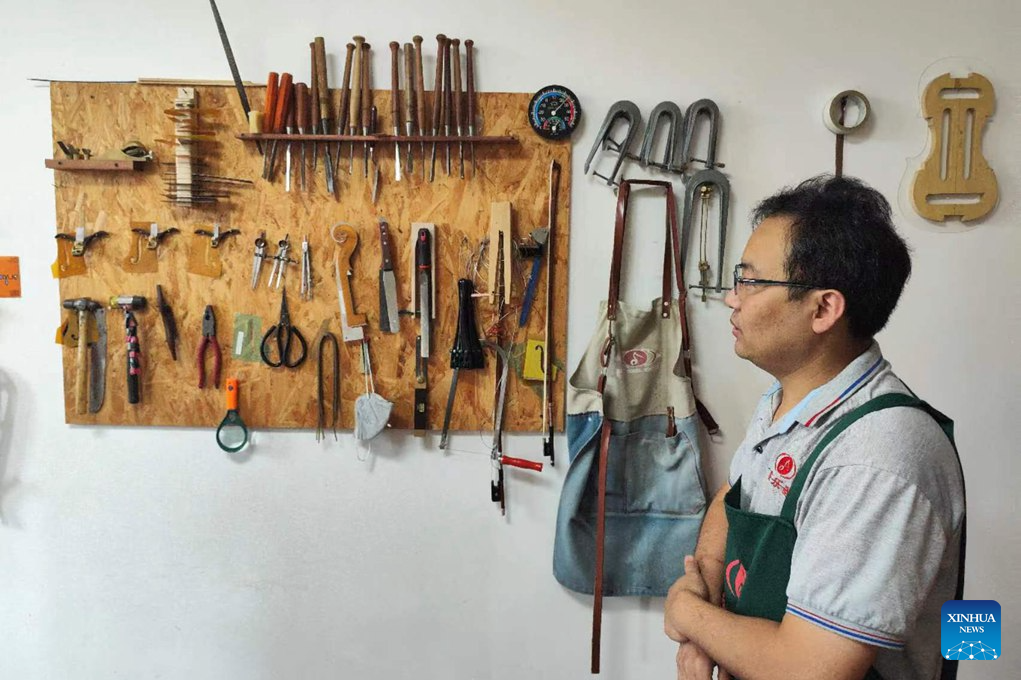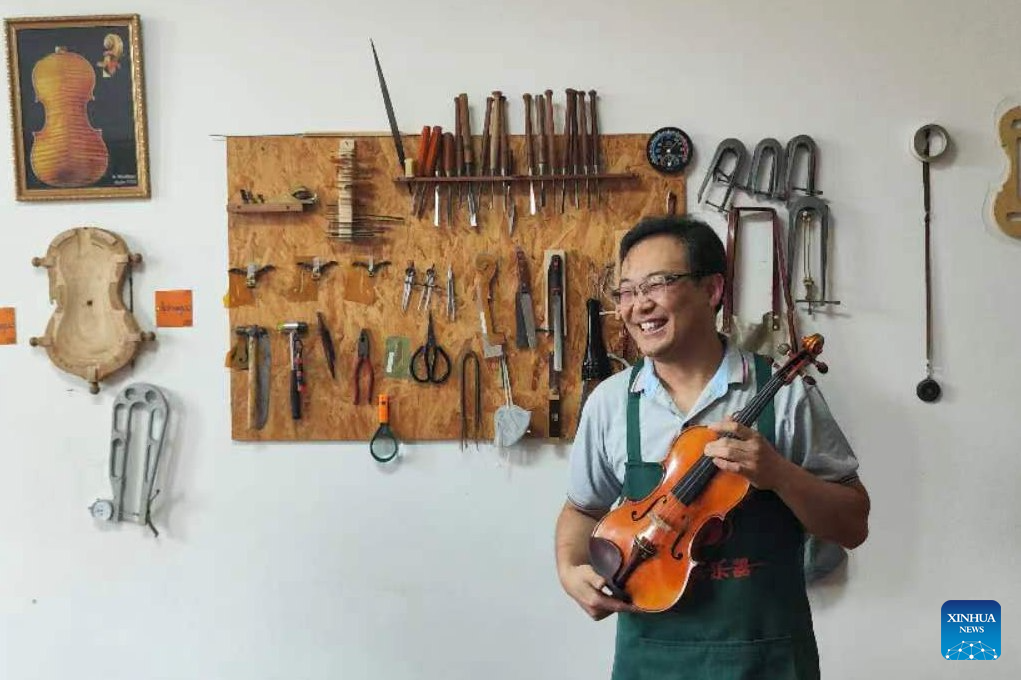
This photo taken on July 1, 2024 shows Chen Fengjun working at his workshop in Donggaocun Town, Pinggu District, Beijing, capital of China. (Xinhuanet/Liu He)
By Liu He
Chen Fengjun, a villager from east China's Anhui Province, came to learn the trade of violin-making in a farmhouse-turned workshop in rural Beijing some 24 years ago. Never in his wildest dreams did he think that he would become the world-class luthier he is today.
Chen won the gold medal at the Violin: Soul and Shape international violin-making competition in 2014. His works have become cherished instruments of top musicians in many countries.
Chen's career grew with the violin-making industry in Pinggu District in northeast Beijing. When he journeyed 800 kilometers to get here in 2000, what would be Beijing International Music Valley was still a village better known for sweet juicy peaches than violins. Now the valley, or Donggaocun town, is home to hundreds of luthiers, with over 80% of its products exported to more than 30 countries and regions.
Making-violin was more difficult than Chen had expected. He would put hours into making fingerboards -- the delicate "neck" of the violin, only to be trashed by his master. He even paid the price of blood.
In 2003, Chen was so focused on perfecting a fingerboard that he forgot how close his hand was to the running machine. Before he knew it, his left middle finger was almost cut off by a spinning blade of the planer.
Such an injury could have meant the end of a luthier's career. Luckily Chen's finger was saved, and he persisted. The deep scar on the left middle finger was one of many on Chen's sturdy weathered hands.
"Mastery takes time," on the secret of his success, Chen would quote his uncle, who led his way to the budding industry in Donggaocun. On the wall of his workshop hung numerous tools, each for a different task. To make a violin, one has to go through a dozen of procedures, which can be further divided into over a hundred steps, Chen said.
Early on, Chen learned from skilled workers, wrote down details of every step in his notebook, and kept thinking about them in his free time. "I practiced for six months just to get a hang of making fingerboards," Chen said.
Having become an internationally award-winning luthier, Chen continues to make new entries to his thick notebook. He meticulously recorded every detail of each violin he crafted in precise numbers. "Any alteration of component would profoundly affect how a violin sounds," he said.
The craftsmanship of Chinese luthiers has earned them recognition from violin players around the world. "China exports over 1 million violins annually, accounting for more than half of the global market," said Gregg Alf, member of the International Association of Violin and Bow Makers.
Even today, Chen still keeps learning and improving. Chemistry, machinery, artistry, carpentry...the quest for perfection in luthiery has no end.
"I will continue making violins, until I can't do it anymore," he said.

This photo taken on July 1, 2024 shows Chen Fengjun and the took rack at his workshop in Donggaocun Town, Pinggu District, Beijing, capital of China. (Xinhuanet/Liu He)

This photo taken on July 1, 2024 shows Chen Fengjun holding a violin he crafted at his workshop in Donggaocun Town, Pinggu District, Beijing, capital of China. (Xinhuanet/Liu He)



